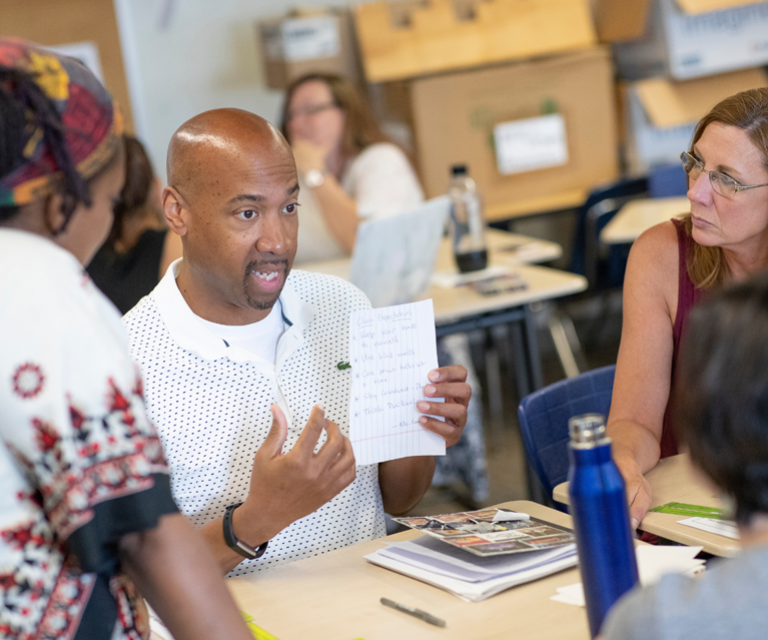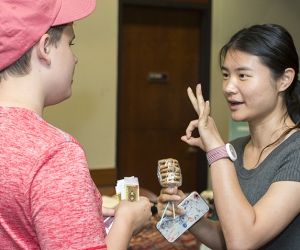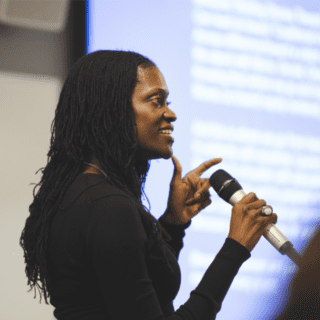
Classroom Educators and Researchers Collaborate to Explore Emancipatory Research Questions
Article first published March 10, 2022
A new case study published today details an 18-month initiative in which 20 Pittsburgh area Black and Latinx educators and 20 educational researchers partnered to conduct meaningful and impactful research focused on the educators’ learning spaces.
The initiative—Shifting Power in Educational Research and Development, or known simply as “Shifting Power”—was designed and facilitated by Remake Learning and University of Pittsburgh School of Education, with the help of a $1 million grant from the Bill & Melinda Gates Foundation. In addition to shedding light on the personal, professional, and collective experiences of participants, the case study offers five essential agents, or mechanisms, that were utilized to shift power from centering on university faculty and their individual research agendas to the expertise and collective knowledge of Black and Latinx school practitioners.
In every institution and societal system, power shows up with influence and force.
In the context of education and educational research, highly trained researchers in academia and independent research organizations hold power and authority when it comes to determining which research questions to pursue and how to frame them. They decide who to involve, how to represent the voices and stories of research participants, and how to make meaning of the findings.
“When educational practitioners are not included as co-leaders in research, an incredible wealth of knowledge, experience, and perspective is lost,” said co-principal investigator Allyce Pinchback-Johnson. “The outcome is even more sizable with the lack of opportunity typically afforded to Black and Latinx educators to design and lead educational research. Ultimately, students are the ones most harmed when costly and time-intensive research lacks relevance.”
Shifting Power in Educational Research
These unbalanced and unjust power dynamics are the reason Remake Learning and University of Pittsburgh School of Education launched the Shifting Power initiative in the summer of 2020.
The purpose of the initiative was to design, pilot, and learn from an equity-based R&D process that positions Black and Latinx educators as leaders and experts, for the benefit of the Black and Latinx students they serve. Throughout the duration of the 2020-2021 school year, participants learned about and leveraged concepts of equity, justice, and emancipatory research to develop research projects directly inspired by and stemming from the educators’ experiences with students and youth.
Educator-researcher pairs tackled a broad range of issues, including the representation of Black scientists in textbooks, the efficacy of using robots in middle school math instruction, the extent to which sending “nudge letters” home to parents would improve attendance for English Language Learners, and the motivation of Black families to begin homeschooling, among many other topics.
Judith Williams-Wright, a high school teacher at Propel Braddock Hills in Pittsburgh said, “A lot of times research done on people of color comes from a deficit-based mindset of completing the research to ‘fix’ whom you are researching instead of fixing the system they are trapped in. The research we engaged in through the support of this initiative was the total opposite.”
She went on to share, “In all honesty I am not ready for this experience to end. This has given me that fire I need to be intentional about bettering the educational ecosystem I am a part of.”
Creating Transformative Practices
Co-principal investigators Dean Valerie Kinloch and Allyce Pinchback-Johnson collaborated with a team of nine project leaders who facilitated monthly cohort meetings and engaged with educator and research participants through the experience to provide support.
Pinchback-Johnson reflected, “This experience gave all of us such energy and inspiration. The Black and Latinx educators who participated really brought it in terms of their ideas, passion, and commitments to doing right by their students. It was an honor to be amongst such brilliance and talent.”
According to Kinloch, “This work is just the beginning of how we seek to radically reimagine educational development, practice, and research. Collectively, we designed and developed a model for more diverse, equitable, and inclusive educational research-practice partnerships.”
Kinloch also stated her belief that “this model has the rich potential to productively impact other K-12 and higher education contexts, as they can both learn from and adopt transformative practices that shift power in their own learning spaces. Here in Pittsburgh, we are applying lessons from this work in our efforts to recruit, retain, and graduate more Teachers of Color into the teaching profession. Relatedly, in our Pitt School of Education, we are intentionally collaborating to ensure that our School actively leads in the work of educational equity and justice.”
Learn More
- Members of the Shifting Power team gave a presentation on their work at the SXSW EDU Conference in Austin, TX, on Tuesday, March 8, 2022. Their presentation is titled, Shifting Power in Educational R&D.




